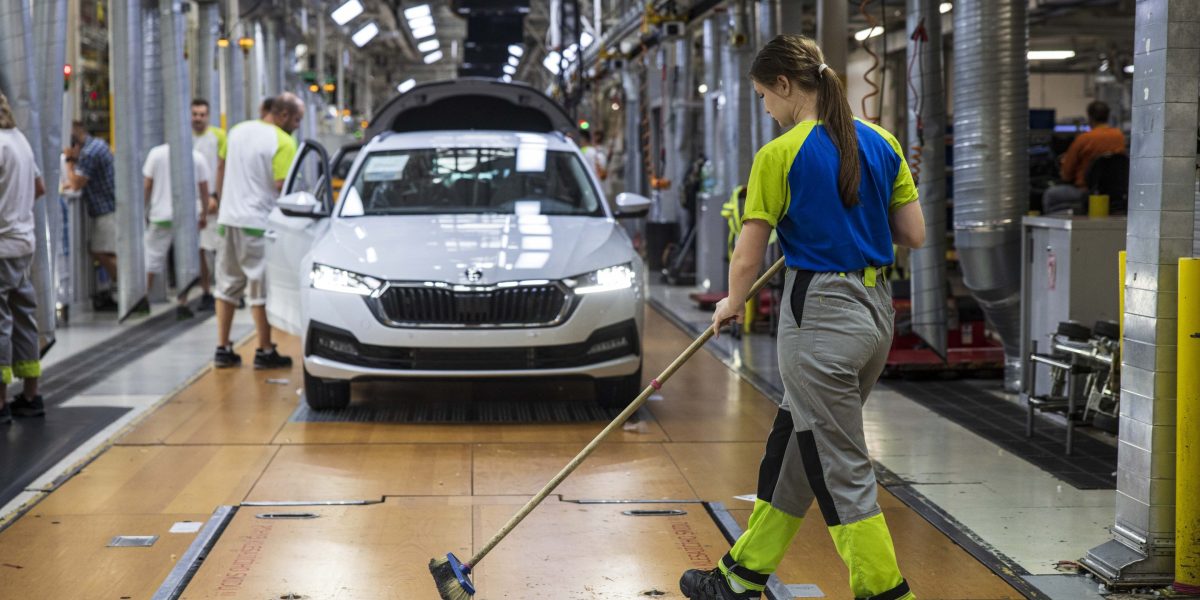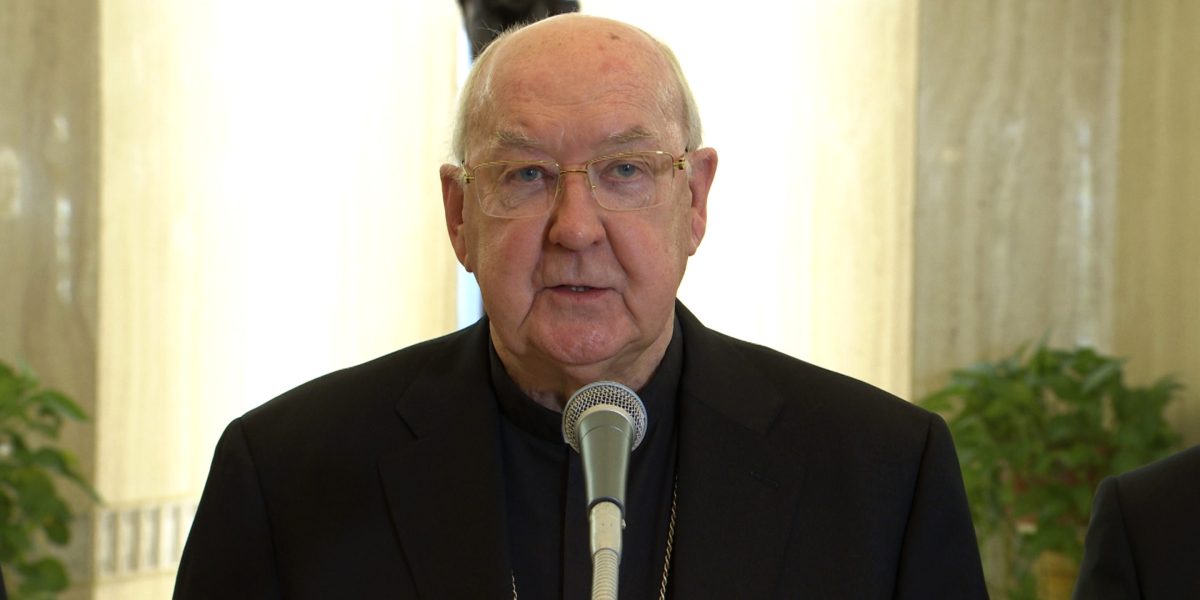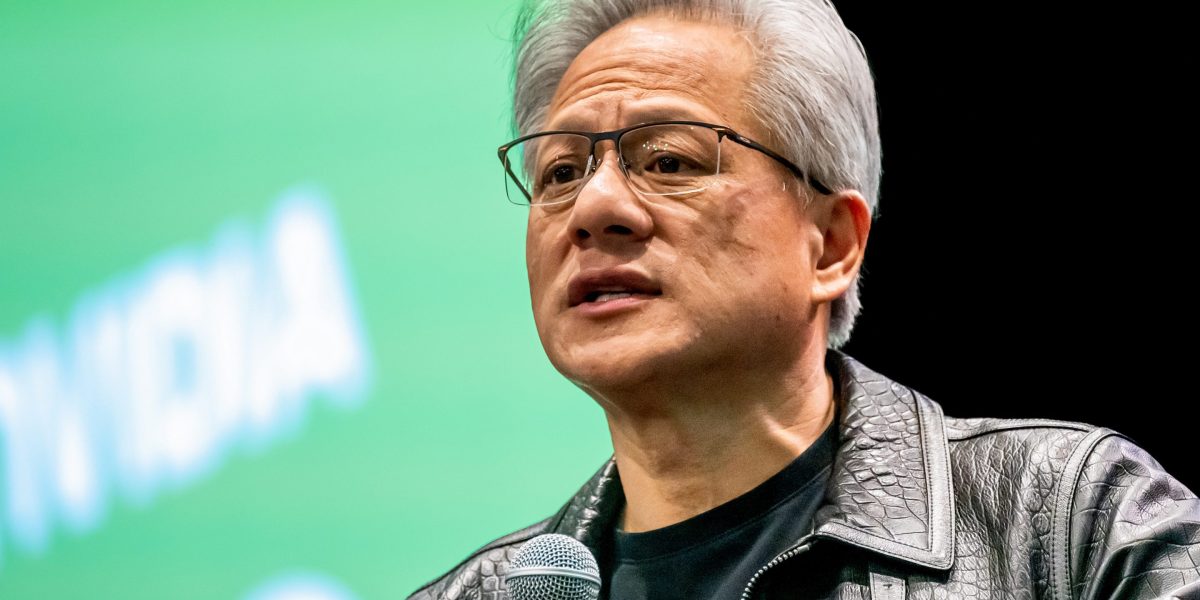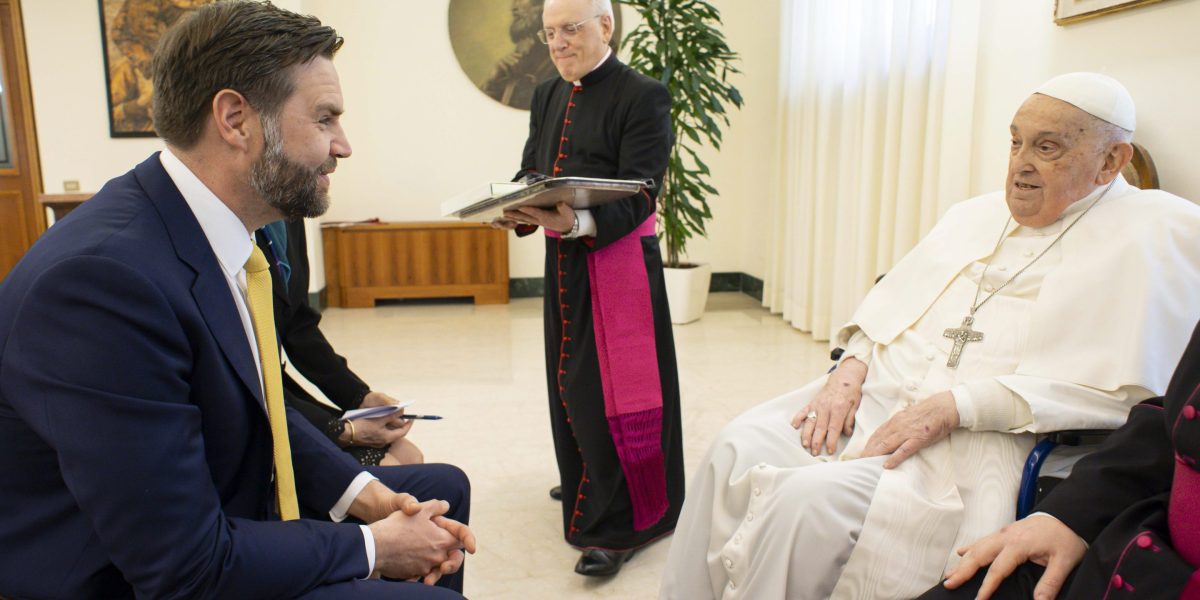There is a shadow hanging over the Europe. The ascent of Donald Trump to the White House has exposed brewing fragilities within the continent’s economy and military prowess. That hasn’t been evident anywhere more than in Germany, the industrial powerhouse reeling from two years of negative growth.
Now, Germany’s allies, who have lived in their own shadow of Europe’s biggest economy, are left facing questions about their own survival. That’s most evident in its neighbor to the east: the Czech Republic.
Within the giant $348 billion Volkswagen group lies Skoda, a quiet success story for the Czech Republic that says as much about the country’s post-Cold War ascension as it does about its long-term risks.
The Czech Republic, also known as Czechia, has built its post-Cold War economy in the same way Germany did post-reunification: with a focus on industry. Manufacturing as a share of GDP has hovered above 20% in the country for the last 30 years, joining Germany in bucking the Western trend of deindustrialization.
A third of Czechia’s exports go to Germany, while 20% of its imports come from its closest neighbor.
The ties between the Czech Republic and Germany are best exemplified by Skoda, the Czech Republic’s largest company, which is owned by Germany’s largest company, Volkswagen.
Skoda’s strength
Skoda makes up a significant chunk of the massive Volkswagen group, which also contains Audi, Seat, Porsche, and the Volkswagen brand itself.
The carmaker raked in €26.5 billion in revenues in 2023, a massive 26% increase on 2022, and equivalent to nearly 10% of the Czechian economy.
If it were an independent company, Skoda would rank in the top 150 of the Fortune 500 Europe, as one of the top 10 carmakers, and by far the largest Czech company on the list.
The automaker also hasn’t faltered in recent years like its fellow automakers under the Volkswagen umbrella. In the first nine months of 2024, Skoda increased operating profits by nearly 35% compared with the same period in 2023, while the Volkswagen group as a whole faced a 10% decline in profits.
The group’s profit margin in the first nine months of 2024 of 8.3% also puts it among the most profitable brands across Volkswagen and well above the collective group margin of 5.6%.
Skoda is, according to David Havrlant, chief economist for the Czech Republic at ING, the “golden egg” within the Volkswagen group, he told Fortune.
The carmaker’s sales are overwhelmingly Europe-focused. Around nine in 10 of its cars were delivered to Europe in 2023, with the remainder going to Asia-Pacific. That appears to have shielded the manufacturer from the fall-off in sales experienced by Volkswagen, which built its dominance on China’s burgeoning consumer market, which has gone into reverse in recent years.
Indeed, through 2024 Skoda increased its deliveries by 6.9%, compared to the Volkswagen brand’s 1.4% decline, reflective of a nearly 10% reduction in China deliveries last year.
That divergence from Volkswagen speaks more broadly to a divergence between Czechia and Germany.
The Czech Republic, alongside Germany, struggled through 2024, with GDP declining 0.3% in the wake of sanctions on Russian energy.
Yet the country is expected to rebound faster than its partner to the West, with growth projections of 2.3% in 2025, almost triple Germany’s projected growth of 0.8%, according to International Monetary Fund (IMF) forecasts.
The Czech economy has proved more attractive for businesses looking to expand their footprint. Wages in the country, for example, are around half what they are in Germany, lowering input costs.
Its wider population seems more content too.
“I would say that the Czech consumer is less depressed than the German consumer,” Ana Boata, head of economic research at Allianz Trade, told Fortune.
Domestic demand is expected to be a big driver of Czech GDP growth this year, reflective of that higher consumer confidence.
But seemingly unshakeable bonds between Czechia and Germany continue to threaten the country’s economy.
Czechia’s obstacles
Czechia’s manufacturing output has moved in lockstep with Germany’s since the latter’s downturn began in 2022. Both countries’ PMIs have been in contraction territory for nearly three years as manufacturers battle with higher energy costs and falling demand, causing knock-on effects to producers downstream.
Ladislav Tyll, a lecturer at the Prague University of Economics and Business, notes that between manufacturers and companies in the supply chain, the automotive sector in Czechia accounts for around half a million jobs.
“So frankly speaking, if anything goes wrong… they are out of business, and this country could technically financially collapse,” Tyll told Fortune.
Both countries have been struggling with falling investment, creating a barrier to future growth.
“That’s really not good for those economies, and that doesn’t signal anything good for the coming years,” said Tyll.
One of Chezia’s primary concerns for its manufacturing-heavy economy is oppressive climate targets. The country joined Italy last November in calling for a relaxation of the EU’s climate rules that will lead to the banning of the sale of carbon-emitting vehicles by 2035.
Allianz’s Boata says 2025 is a year of transition for carmakers and the economies they occupy. On the one hand, they will need to up their production of electric and hybrid vehicles to comply with environmental regulations. On the other, this means wading into much more competitive markets beset by cheap Chinese-made competitors.
“That will also imply some impact on the turnovers of those Czech suppliers that are basically interlinked with the German car makers, not only volume, but also price,” says Boata.
ING’s Havrlant writes extensively about the Czech economy. He says that there are four stages of structural crisis a country must pass through before policymakers can step in.
“You have to recognize there is a problem. Second, you have to admit it is your problem. Third, you have to force yourself to get across that you want to do something about it. And fourth, you do something about it.”
The Czech Republic is somewhere before stage three and four when it comes to its automotive sector, Havrlant says, while he thinks Germany is stuck at point zero.
As a result, Havrlant believes the Czech economy is slowly decoupling itself from Germany.
“Their order books have been bad for such a long time that until now, it was always enough to wait until things got better, but that’s not the case anymore,” Havrlant said of Czechia and Germany’s relationship.
Political headwinds
The political story in Czechia is also the same as in Germany and, increasingly, across the rest of Europe.
Like in Germany, elections beckon in 2025, and there is a similarly populist tone to polling in both countries.
Between Alternative for Deutschland (AfD) in Germany, National Rally in France, Brothers of Italy in Italy, and Reform in the U.K., Europe’s biggest economies have been rocked by surging support for far-right political parties ready to upset the status quo.
So follows the similarly jingoistic Patriots for Europe, the insurgent Cezchian populist party set to sweep elections later in 2025.
Tyll says the potential victory of Patriots for Europe would likely have a positive impact.
Instead, it’s Germany’s February elections that pose more of a risk for Czechia’s economy.
He worries that the rising influence of the far-right AfD could cause Volkswagen to target job cuts outside of Germany, with Skoda’s tens of thousands of employees a potential target.
The country will hope Germany recognizes the importance of its “golden egg” and the deeper partnership that looks like it’s serving Czechia more than its ally.
Editor’s note: A version of this article first appeared on Fortune.com on January 21, 2025.
This story was originally featured on Fortune.com
Source link

 Entertainment8 years ago
Entertainment8 years ago
 Politics8 years ago
Politics8 years ago
 Entertainment8 years ago
Entertainment8 years ago
 Entertainment8 years ago
Entertainment8 years ago
 Tech8 years ago
Tech8 years ago
 Tech8 years ago
Tech8 years ago
 Tech8 years ago
Tech8 years ago
 Politics8 years ago
Politics8 years ago







